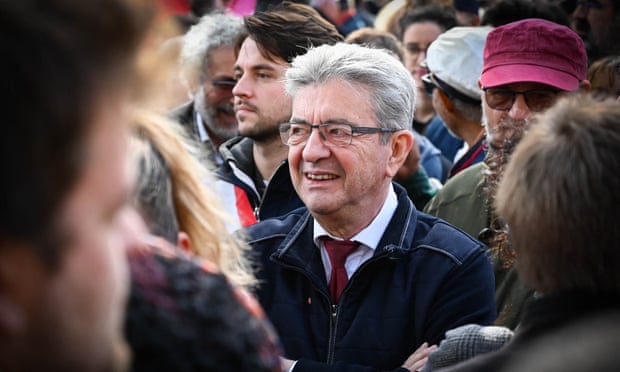Blog Archive
-
►
2026
(995)
- ► February 2026 (462)
- ► January 2026 (533)
-
►
2025
(7363)
- ► December 2025 (582)
- ► November 2025 (538)
- ► October 2025 (563)
- ► September 2025 (556)
- ► August 2025 (610)
- ► April 2025 (729)
- ► March 2025 (719)
- ► February 2025 (606)
- ► January 2025 (639)
-
►
2024
(7366)
- ► December 2024 (613)
- ► November 2024 (623)
- ► October 2024 (644)
- ► September 2024 (649)
- ► August 2024 (632)
- ► April 2024 (594)
- ► March 2024 (667)
- ► February 2024 (560)
- ► January 2024 (579)
-
▼
2023
(7748)
- ► December 2023 (588)
- ► November 2023 (572)
-
▼
October 2023
(574)
-
▼
Oct 27
(21)
- RNC Selects Lester Holt, Kristen Welker and Hugh H...
- X22, And we Know, and more- Oct 27
- Premodern Diversity Vs. Civilizational Unity ~ VDH
- Jake Sullivan’s Article Rewrite Shows His Biden Fo...
- The First Shoe Drops Against Rashida Tlaib in the ...
- House GOP Provides Evidence Jamie Raskin Lied Abou...
- Jack Smith Is Baiting President Trump to Get His S...
- Speaker Mike Johnson Sits Down with Sean Hannity f...
- Bare Your Fangs, Mike Johnson
- Disingenuous Leftists Snarl at Speaker Mike Johnso...
- Israel's Military vs. the Arab States, by the Numb...
- Italian mum wins court order to evict her sons - a...
- FBI And Its Foreign Influence Task Force Purged So...
- Sen. Grassley Details FBI HQ Running National Cove...
- Jean-Luc Mélenchon is a disaster for the French le...
- House Republicans Demand White House Provide Info ...
- U.S. Launches Retaliatory Strikes Against Iran’s I...
- Testy Exchange Between John Kirby and Jacqui Heinr...
- The Mainstream Press Is So Awful on Hamas That Joh...
- Hamas Clarifies They Only Want Israel to Cease Fire
- AP Stylebook Suggests Hamas Not Be Called ‘Terrori...
-
▼
Oct 27
(21)
- ► September 2023 (594)
- ► August 2023 (646)
- ► April 2023 (649)
- ► March 2023 (765)
- ► February 2023 (688)
- ► January 2023 (673)
-
►
2022
(8203)
- ► December 2022 (664)
- ► November 2022 (534)
- ► October 2022 (526)
- ► September 2022 (511)
- ► August 2022 (591)
- ► April 2022 (817)
- ► March 2022 (927)
- ► February 2022 (759)
- ► January 2022 (824)
-
►
2021
(8388)
- ► December 2021 (790)
- ► November 2021 (803)
- ► October 2021 (935)
- ► September 2021 (857)
- ► August 2021 (760)
- ► April 2021 (547)
- ► March 2021 (576)
- ► February 2021 (581)
- ► January 2021 (658)
-
►
2020
(8082)
- ► December 2020 (612)
- ► November 2020 (552)
- ► October 2020 (645)
- ► September 2020 (560)
- ► August 2020 (539)
- ► April 2020 (683)
- ► March 2020 (812)
- ► February 2020 (744)
- ► January 2020 (754)
-
►
2019
(2923)
- ► December 2019 (726)
- ► November 2019 (610)
- ► October 2019 (761)
- ► September 2019 (687)
- ► August 2019 (139)
Categories
Joe Biden
(2883)
Deep State
(2593)
Democrats
(2472)
Modern Liberalism
(2300)
Wokeness
(2217)
Corruption
(2126)
marxism
(2106)
Oligarchy
(2037)
WalkAway
(1866)
gaslighting
(1809)
Investigation
(1639)
Democrat Coup
(1558)
TDS
(1517)
Globalism
(1463)
Hoax
(1383)
X22
(1296)
Uniparty
(1274)
Left-Wing Violence
(1247)
#BlueAnon
(1228)
MAGA
(876)
#News
(789)
Pres. Trump
(638)
News
(519)
President Trump
(438)
Opinion
(279)
Ukraine
(248)
#Commentary
(209)
Memes
(122)
#BidenRegime
(71)
#OPEN THREAD
(63)
#Music Thread
(6)
Become A Contributor
If you would like to become a W³P Lives contributor, please fill out the contact form below. You may submit any email address; however, you will need a gmail to login to blogger.com and access the back end of the blog where posts are created.
If you do not want to submit your actual email, please create a gmail specifically for this purpose and submit it to us via the form below. It will skip a step, since a gmail will be required to login anyways.
After filling out the form keep any eye out for your email invitation in your inbox. Accept the invitation, login to blogger.com, and start making discussions.
Thanks!
Contact Form
What We're About
Discussions about current events and societal trends in the news, not necessarily just politics. The quickest way to get banned is by using juvenile racist language.

Popular Posts
-
VOTRE NOUVEAU FORUM;
-
W³P Daily News Open Thread. posted by DarkGoldenMan Welcome to the W³P Daily News Open Thread. Post whatever you got in the comments ...
-
Harris is not so much a flip-flopper as a padder, who supports anything, without any worry about framing each new position by renouncing h...
Created By SoraTemplates | Distributed By MyBloggerThemes




Post a Comment